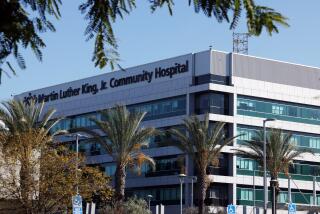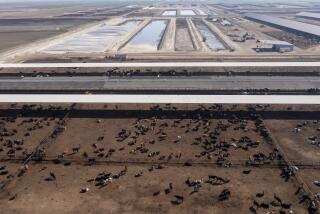Fund Health Care for Common Good
- Share via
* Was it by design that your timely report on rural hospitals and Robert B. Reich’s commentary, “If Not Now, When, for Universal Health Care?” appeared in the same issue on April 2? Indeed, the plight of Lone Pine’s Southern Inyo Hospital and others like it is desperate beyond description. A number of economic and social forces are causing major disruptions in the rural heart of America: small farmers being driven out by agribusiness; the “WalMartization” of the country, with elimination of small businesses; and the “industrialization” of medicine by the insurance company HMOs and their administrators. As you report, rural, independent hospitals have little choice but to lock their emergency rooms, birthing centers and other vital services.
Until the U.S. adopts a national health service so that hospitals, the 43 million-plus uninsured, the marginally insured and others can survive, it will only get worse. Meanwhile, the people of this country are the losers.
LAWRENCE D. LONGO MD
Loma Linda
*
* I can personally attest to the importance of having a viable Southern Inyo Hospital, having used its services on a recent trip to the High Sierra. As I recall, the attending physician had just completed emergency care for victims of a horrific accident on U.S. 395.
Southern Inyo is more than a typical rural hospital, since many of its patients come from outside Inyo County. Inyo County, with its limited tax base, cannot totally fund such a facility. We expect Caltrans to maintain and improve U.S. 395, even though it passes through a sparsely populated area. However, the cost of providing emergency services for motorists is left to local jurisdictions, which in this case have limited resources. It is clear that the state of California must step in and shore up Southern Inyo Hospital if motorists are to have access to adequate acute care.
RODNEY D. SUTHERLAND
Pomona






